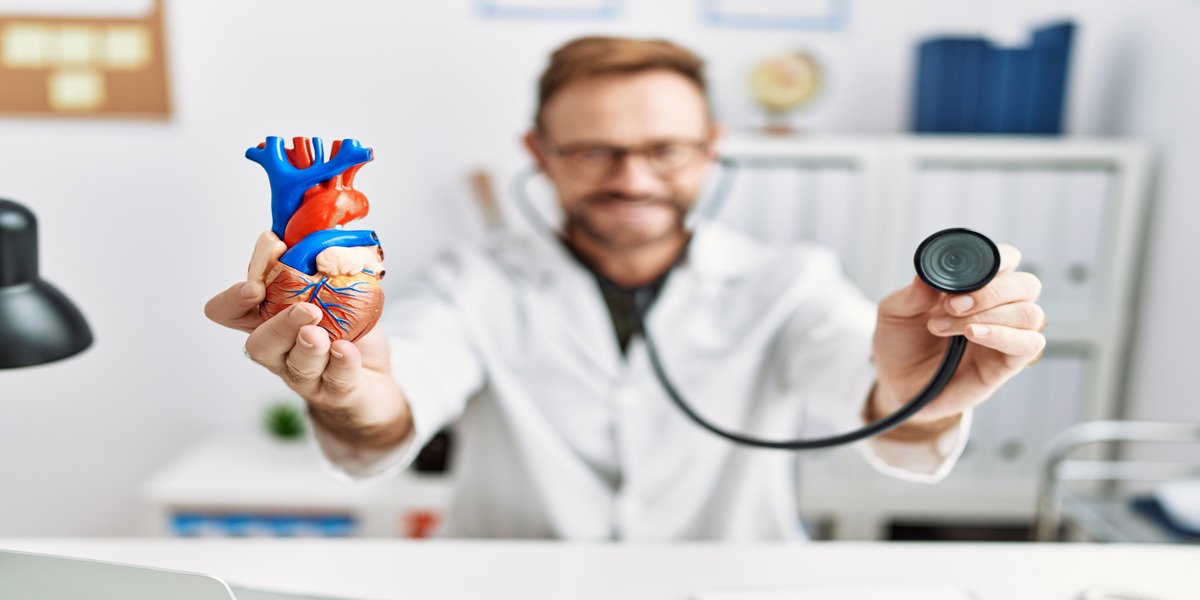Are you interested in a career in the healthcare industry that involves using advanced technology to diagnose and treat cardiovascular conditions? Becoming a cardiovascular technologist might be the right path for you. With the increasing prevalence of heart disease, the demand for a qualified cardiovascular technician is rising.
According to the US Bureau of Labour Statistics, employment of cardiovascular technologists and technicians is expected to grow 10% between 2021 and 2031, faster than the national average.
The median annual wage for cardiovascular technologists was around $75,380 between 2021 and 2023.
As a cardiovascular technologist, you will play a critical role in the healthcare team by performing non-invasive cardiovascular procedures and collaborating with physicians to provide accurate diagnoses and treatment plans. So, if you are passionate about a career in a cardiovascular technologist.
Duties and Responsibilities of a Cardiovascular technologists
Let us explore the roles of a Cardiovascular technologist below in the blog post.
1. Performing Non-Invasive Cardiovascular Tests
Cardiovascular technicians employ a variety of non-invasive diagnostic procedures, such as electrocardiograms (ECG), echocardiograms (ECHO), and stress tests, to assess how well the heart and blood vessels are functioning. While performing these procedures, they monitor the patient’s oxygen saturation, pulse rate, and blood pressure.
2. Collaborating with Physicians
Cardiovascular technologists work closely with physicians to provide accurate diagnoses and treatment plans. They may discuss test results with the physician, provide additional data or observations, and contribute to developing treatment plans.
3. Documenting Patient Data
Cardiovascular technologists work closely with stakeholders to document patient data sets, information, and insights. They help in documenting information related to diagnoses, treatment plans, and involved observations.
Read More:- Reasons to Become a Cardiovascular Technologist
4. Maintaining Equipment
Cardiovascular technologists are responsible for ensuring that all equipment is in good working order and properly calibrated. They may perform routine maintenance tasks, troubleshoot problems, and coordinate repairs as needed.
How Does Cardiovascular Technologist Work?
Cardiovascular technicians work in various settings, including hospitals, clinics, private practices, and diagnostic imaging centers. Depending on their specialization, they may work in cardiac catheterization, echocardiography, or stress testing labs. Some cardiovascular technologists also work in research settings or the medical device industry.
In hospital settings, the work activities of a Cardiovascular Technologist include the cardiology department, but they may also work in emergency departments or operating rooms. They may work with cardiologists, vascular surgeons, or other medical specialists in clinics and private practices.
Required Education and Training to Become a Cardiovascular Technologist
Education: The requirement to become a Cardiovascular Technologist is you must have to complete a cardiovascular technologist program at an accredited institution. These programs typically take 2-4 years to complete, resulting in a certificate, diploma, or associate degree.
Skills: Besides formal education, cardiovascular technologists should have strong analytical and critical thinking skills. They should be empathic and possess good communication and interpersonal skills to counsel the patient actively. Attention to detail, the ability to work well under pressure, and the ability to work as part of a team are also crucial for a Cardiovascular technologist.
Certification and Licensing Requirements: Student with High School Diploma/GED or Associate Degree is only eligible to take certification exam through Cardiovascular Credentialing International (CCI). Through the CCI graduates would take the Registered Cardiac Sonographer (RCS) exam and/or Registered Vascular Specialist (RVS). Individuals that have a bachelor’s degree or Higher is eligible to take certification exam through American Registry for Diagnostic Medical Sonography (ARDMS). Through the ARDMS, individuals would take the Registered Diagnostic Cardiac Sonographer (RDCS) exam and/or Registered Vascular Technologist (RVT).
Options for Continued Education and Professional Development: Cardiovascular technologists must take advantage of chances for continuing education and professional development to stay informed about changes in their area. Via conferences, workshops, and online courses, many professional organizations provide chances for continuous education. Also, some firms could provide on-the-job training or tuition assistance for further study.
Key Takeaways
With the increased demand for cardiovascular care, 10,100 new job openings are expected in the coming years. There is also the possibility of career growth and advancement, with opportunities to specialize in various areas of cardiovascular technology or to move into supervisory or management roles.
In terms of salary and benefits, a cardiovascular technologists career can expect to earn a competitive salary range of about $36.24 per hour, which will increase with time and need. They may also be eligible for health insurance, retirement plans, and paid time off benefits. It can be both fulfilling and financially rewarding, making it an excellent choice for those seeking a healthcare career.
FAQs
1. What are the duties of a Cardiovascular Technologist?
Cardiovascular technologists perform various duties related to diagnosing and treating cardiovascular disease. These duties include performing diagnostic procedures such as electrocardiograms (ECGs), echocardiograms, and stress tests, assisting physicians during invasive procedures such as cardiac catheterizations, and educating patients about cardiovascular disease and prevention.
2. Is Cardiovascular Technologist a good career?
Yes, Cardiovascular technology is a promising career with opportunities for growth and advancement. The demand for cardiovascular care is increasing, and cardiovascular technologists play a critical role in diagnosing and treating cardiovascular disease. Additionally, the field offers a variety of specialties and work settings, making it a flexible and fulfilling career option.
3. Is cardiovascular technology a doctor?
No, cardiovascular technologists are not doctors. They work alongside physicians and other healthcare professionals to diagnose and treat cardiovascular disease. While they are not licensed to practice medicine, they are critical in providing patient care.
4. Where do Cardiovascular technologists make the most money?
Cardiovascular technologists may earn more or less money depending on their region, experience, and education. According to the U.S. Department of Labour Statistics, cardiovascular technicians and those with advanced certificates and specialties typically make more money in metropolitan regions. Remembering that picking a vocation should not solely depend on money is crucial.
5. What is The Job Description of a Cardiovascular Technologist?
Cardiovascular technologists use diagnostic imaging tools to help diagnose and treat cardiovascular disease. This can involve monitoring patients during invasive operations like cardiac catheterization and electrocardiograms, echocardiograms, and another diagnostic testing.
6. What are the roles and responsibilities of a Cardiovascular Technologist?
Cardiovascular technicians often carry out diagnostic procedures and tests, prepare patients for procedures and testing, monitor patients throughout processes, maintain equipment, and document test results. Also, they might help doctors understand test results and create treatment recommendations.
7. What is the skill of a Cardiovascular Technologist?
Cardiovascular technologists must be proficient in operating and maintaining diagnostic equipment and have a solid understanding of cardiovascular anatomy and physiology. Because of their intimate contact with patients, doctors, and other healthcare professionals, they must also have excellent interpersonal and communication skills, critical thinking, attention to detail, the ability to function under pressure, and professionalism and compassion in handling challenging circumstances.




